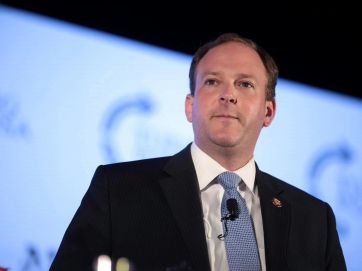The History Department at the University of Massachusetts Amherst is offering a two-credit "Independent Study" for students who agree to canvass or otherwise volunteer in a presidential campaign through Election Day. An email from an Obama campaign worker urges students from UMass and four colleges that allow cross-registration with UMass (Amherst, Smith, Mt. Holyoke, Hampshire) to sign up before it is too late.
[2:10 PM --We get results! The UMass Lecturerer, Kent Higgins, whose email encouraging Obama volunteers to sign up for the History Independent Study, has changed his story. Today he writes, "I made a mistake. In fact, no UMass of [sic] 5-College student will be able to get any credit for any sort of volunteering at all through the History Department."]
When a UMass faculty member alerted me to this, I was surprised. Apparently, I shouldn’t have been. The practice seems to be fairly widespread.
The student newspaper at the University of Memphis reports that seventeen students on that campus are receiving course credit for volunteering in a presidential campaign:
On campus, the volunteer interns sell T-shirts and register new voters. At campaign headquarters, they man the phones, stuff envelopes and canvass the town, needing to contribute 150 hours of work for a 3 hour pass/fail credit that will count as an upper level communication or political science course. Before the end of the semester, each intern must write a paper about the experience and pass an evaluation from campaign officials.
The story describes the efforts of several members of “West Tennessee Students for Obama.” No mention of any McCain volunteers availing themselves of the opportunity to sell T-shirts or stuff envelopes for college credit.
It appears that colleges and universities that offer students credit for volunteering in presidential campaigns are scrupulously making the option available to both Obama and McCain volunteers. But that, of course, doesn’t settle the question of whether colleges and universities should ever award academic credit for political activism.
As far as I can tell, the McCain campaign has not tried to exploit this opening. The Obama campaign, however, is pursuing it aggressively. A “frequently asked questions” page for “Obama Organizing Fellows” asks, “Can I get college credit for my work as an Obama organizing fellow?” And answers: “Contact your college/university with questions regarding college credit. The campaign cannot guarantee that you will receive college credit for work as an organizing fellow.” That’s from the national campaign, but the tactic is also be used at the state level. Obama’s campaign in Florida, for example, maintains an “official call for volunteers in Sarasota and Manatee Counties” that advises would-be volunteers, “Please check with your school as this volunteer work may count as college credit!
Recently Peter Dreier writing in The Nation about “Obama’s Youth Movement,” comments on an organized effort to link students with for-credit volunteer opportunities:
Swing Semester provides a clearinghouse for college students to link up with candidate and issue campaigns in swing states and receive college credit. Occidental College is offering Campaign Semester. Instead of studying abroad, nineteen students are getting a full semester of course credit by spending ten weeks working full-time with a Senate or presidential campaign in eight battleground states and then, after election day, returning to the Los Angeles campus for a five-week reading and research seminar. Most of them signed up to work for Obama.
The Swing Semester website (“Less talkie. More doie”) makes clear that it is recruiting volunteers for “progressive” causes. Its mission is to enable “young progressives to experience political activism in the context of community,” and its advisory council is made of people with well-defined leftist credentials. Swing Semester offers to help “would-be participants” overcome obstacles to participating such as “needing to earn academic credit to graduate.” To this end, the organization provides a “Swing Semester Syllabus” which:
includes books, articles, blog posts, and videos that help illuminate the current progressive political landscape. The syllabus has been developed in consultation with notable professors and contemporary thought leaders in the political world. Participants may use our syllabus to arrange a personalized semester with their advisor that includes readings and writing assignments.
Safe to say that not many student volunteers for McCain will be helped by this, but the more important point is that Swing Semester is an avowedly political organization that helps students subvert academic standards by getting credit for immersing themselves in partisan writings.
The Occidental College program offers a full semester of college credit (16 credits) “for volunteering full-time in a Presidential or U.S. Senate campaign during the Fall 2008 semester. Students can volunteer for a Republican or Democratic campaign, or a “minor” party if the campaign is set up to adequately supervise volunteers. “
Occidental is seemingly not alone. The University of Iowa, for example, runs an internship program that allows students to get college credit for volunteering in presidential races. A University of Iowa journalism site reports:
David Redlawsk, UI assistant political science professor, said that the university has an internship program in which students can earn academic credits for volunteering. The student finds a candidate he or she like, or an organization to volunteer for, then asks a faculty member to supervise the internship, he said.
Redlawsk, who oversaw more than 30 students and also taught a class on the importance of the Iowa caucuses this fall, said students can earn one to three credits by volunteering 50 hours per credit, which is equivalent to a regular class.
Redlawsk does not see any problem with students earning credits for volunteering because “[students] get a valid educational experience.”
One case that initially received some attention appears a bit murky. In June a local newspaper reported that Franklin & Marshall College in Lancaster, Pennsylvania was offering credit for “volunteer work on Barack Obama’s campaign” as one option (among many) for freshmen who chose to delay the start of the school year in favor of an off-campus project. After a blogger drew attention to the story, a columnist for the newspaper said it “would be a heck of story, if it were actually true. But of course it's not.” The columnist then went on to admit that Franklin & Marshall’s spokeswoman said that one student did indeed volunteer for the Obama campaign. For credit?
The denial at least shows a troubled conscience about a dubious development. Regardless of whether Franklin & Marshall joined the fray, it is clear that many colleges and universities have decided that awarding academic credit for campaign volunteering is acceptable. Let’s consider.
First, the National Association of Scholars is non-partisan. We would be as disturbed by this practice if student volunteers in the McCain campaign were receiving academic credit for their efforts as we are by students volunteering in the Obama campaign. In fact, it seems likely that somewhere a college or university is awarding McCain volunteers academic credit. The Obama campaign, however, has specifically encouraged college students to seek academic credit for their volunteering. I have found no evidence that the McCain campaign has pursued a similar tactic.
Second, some of the colleges require that to win credit, the students must do more than volunteer. The University of Memphis, for example, requires that the student also write a paper. This is surely better than awarding credit for activities with no academic content, but it is pretty much a fig leaf. Note that the University of Memphis also requires the student to pass an evaluation from campaign officials. The line between intellectual analysis and partisanship is erased in situations like this.
In February 2008, the Tennessee legislature introduced a bill that would award college students academic credit simply for volunteering at poll sites. I’m not clear whether this legislation passed, but it is a good example of legislators catching the virus. If colleges and universities can award academic credit for non-academic stuff, why can’t legislatures? The slope here seems not just slippery, but nearly frictionless.
Third, academic credit should be awarded for academic accomplishment. The slide toward awarding credit for “life experience” or various forms of community service began some years ago. In our view, this is unfortunate. A college education ought to be based on an academic curriculum. Typically, what belongs in a curriculum is the kind of organized, disciplinary knowledge that isn’t easy to get in any other way. We don’t need college courses on things people can and will learn on their own. Offering college credit for stuff outside the real college curriculum dilutes the curriculum and subtracts from the intellectual value of a college degree.
It also often subtracts from the value of volunteering. The student who gets “paid” academic credit for community service isn’t really a volunteer. He becomes, in effect, a player—someone who is using the occasion to advance himself in the game. Academic credit for non-academic work breeds cynicism, and it would be wiser for colleges and universities to avoid adding to the reasons for college students to sneer at life—and at college.
Be that as it may, a lot of students are cynical and no form of volunteering-for-credit is more cynical than expecting academic credit for helping to elect a political candidate. Higher education is, in principle, an occasion to stand back from the world long enough to understand the larger picture and at least some of the principles that explain it. It can be a heady experience, and college students in every generation are frequently moved to pursue their ideals outside the classroom. But it is one thing to pursue political commitments outside the classroom and quite another to abandon the distinction between the two.
David Redlawsk, the University of Iowa political science professor quoted above, justifies giving academic credit for campaign volunteering on the ground that students “get a valid educational experience.” No they don’t. They well get a useful glimpse of political campaigning, but this is “educational” only in the trivial sense that everything is educational. In fact, when the distinction between academic study and political activism is lowered, political activism tends to dominate, and real education is thrust aside.
Few students have the maturity to realize that accepting an offer from their college to receive academic credit for campaign volunteering is a destructive personal choice. They are trading away a portion of their education for nothing. Colleges and universities should know better.
Image: Wikimedia Commons, Public Domain













